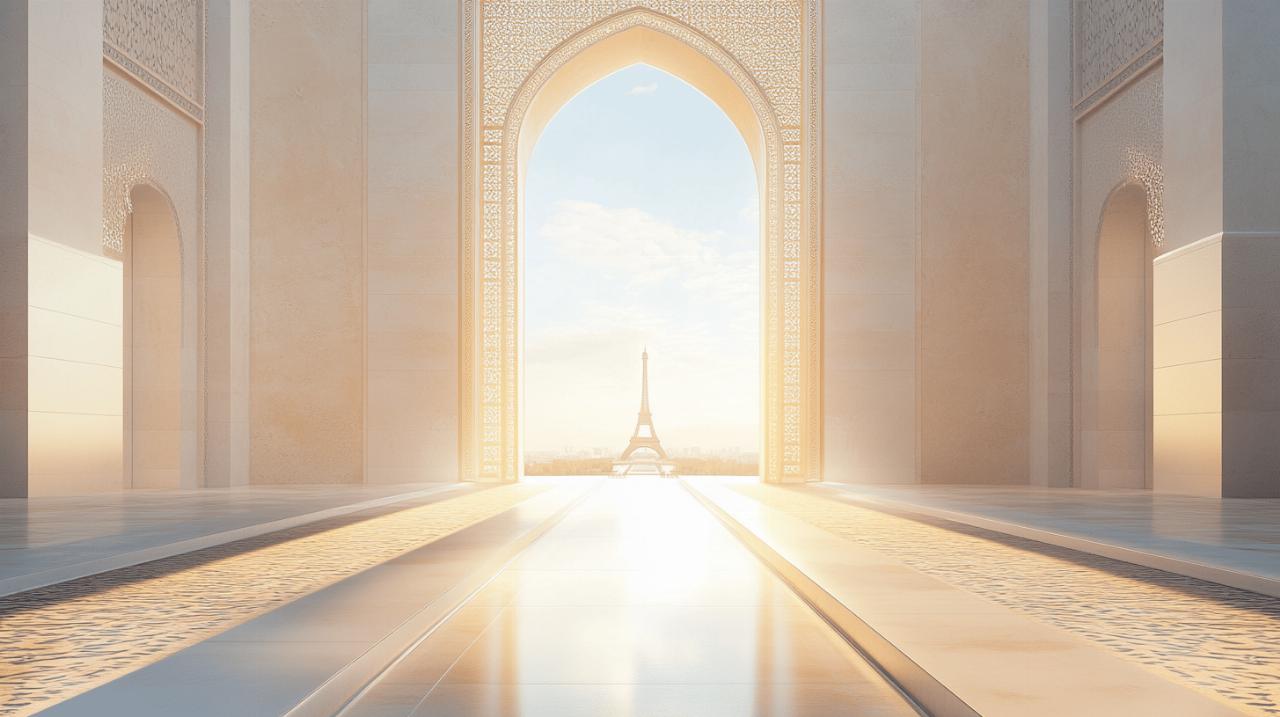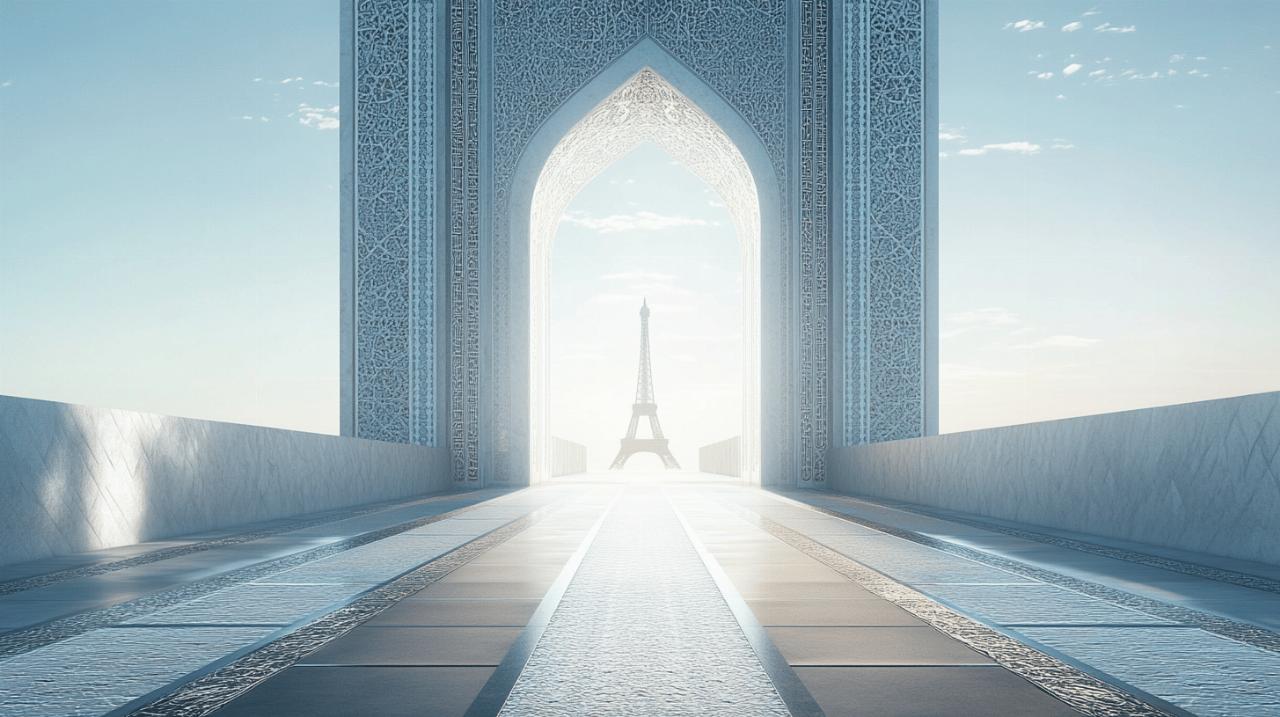Beyond the Page Non Trouvée – Islam de France: How Muslim Literature is Transforming Contemporary French Arts
The evolving relationship between Islam and France has given rise to a vibrant literary movement that challenges conventional narratives and reshapes the cultural landscape of the nation. Muslim writers, poets, and intellectuals are increasingly using the written word to explore questions of identity, belonging, and faith in a society marked by tension between religious expression and the strict principles of secularism. This creative surge reflects not only the experiences of a diverse Muslim community but also the broader complexities of contemporary France, where debates about national identity and religious freedom intersect in profound ways. As these voices gain prominence, they are transforming how French arts engage with the themes of alterity, communitarianism, and the lived realities of those navigating multiple cultural and spiritual worlds.
The historical tapestry: islam's literary roots in france
From Maghrebi Migration to Literary Expression: Tracing Muslim Voices in French Letters
The presence of Islam in France is deeply intertwined with waves of migration from North Africa, particularly from the Maghreb region, beginning in the early twentieth century. These migrations brought with them not only labourers seeking economic opportunity but also rich oral traditions, storytelling practices, and a unique perspective on the French Republic. Over time, the children and grandchildren of these migrants began to articulate their experiences through literature, creating a body of work that reflects the tensions and triumphs of living between two worlds. This literary emergence was not immediate; it required the passage of generations and the gradual establishment of a community confident enough to claim its place within the broader French cultural narrative. The writings of these authors often grapple with themes of displacement, memory, and the struggle to reconcile a Muslim heritage with the demands of a secular republic that views religious expression with suspicion.
Colonial legacies and post-colonial narratives: how history shapes contemporary muslim writing
The colonial history of France in Algeria, Morocco, and Tunisia has left an indelible mark on the literary output of Muslim authors in the country. The legacy of colonialism is a recurring motif, informing narratives that critique the power dynamics and cultural hierarchies inherited from that era. Post-colonial theory has provided a framework for many writers to interrogate the ways in which French secularism and national identity have been constructed in opposition to Islamic identity. This critical engagement is evident in the works of numerous intellectuals who challenge the notion that French values and Muslim beliefs are inherently incompatible. By revisiting historical injustices and exploring the ongoing effects of colonialism, these authors contribute to a broader discourse about citizenship, equality, and the right to cultural and religious expression. Their narratives serve as a reminder that the Muslim presence in France is not a recent phenomenon but rather a continuation of a long and complex historical relationship.
Organisational Influence and Cultural Production: UOIF, CFCM, and the Arts
Institutional support and literary patronage: religious organisations fostering muslim creativity
The role of religious organisations such as the Union des Organisations Islamiques de France and the Conseil Français du Culte Musulman in supporting Muslim cultural production cannot be underestimated. These institutions have increasingly recognised the importance of the arts as a means of fostering dialogue, challenging stereotypes, and promoting a positive image of Islam within the French Republic. By providing platforms for writers and artists, these organisations have helped to nurture a generation of creative voices who might otherwise have struggled to find an audience. Their support extends beyond financial patronage to include the creation of networks and forums where Muslim intellectuals can engage with one another and with the wider public. This institutional backing has been crucial in legitimising Muslim literature as a vital component of contemporary French arts, ensuring that these narratives are not marginalised but instead integrated into the national cultural conversation.
Key Figures and Thought Leaders: Intellectuals Bridging Faith and French Literary Tradition
Among the prominent figures who have shaped the discourse around Islam and literature in France are Abdennour Bidar, Malek Chebel, Leïla Babès, Abdelwahab Meddeb, and Dounia Bouzar. Each of these intellectuals has contributed to the development of a distinctly French Muslim literary tradition, one that engages critically with questions of faith, identity, and secularism. Their works often navigate the delicate balance between remaining true to Islamic principles and embracing the secular values that define the French Republic. Through essays, novels, and public discourse, they have challenged reductive stereotypes and advocated for a more nuanced understanding of what it means to be Muslim in contemporary France. Their influence extends beyond the literary sphere, shaping public debates and informing policy discussions on issues ranging from religious freedom to the integration of minority communities. By bridging the worlds of faith and secular French literary tradition, these thought leaders have demonstrated that Muslim literature can contribute to the enrichment of French culture as a whole.
Laïcité, identity, and artistic freedom: navigating secularism through muslim literature
The legal framework and creative expression: how french secularism shapes muslim storytelling
 French secularism, or laïcité, has been a defining feature of the republic since the early twentieth century, establishing a clear separation between religion and the state. This legal framework has profound implications for Muslim writers, who must navigate a cultural and political environment that often views public displays of religious identity with suspicion. The banning of Islamic headscarves in public schools during the debates of two thousand and three to four, as well as the subsequent controversies surrounding the full-face veil, have underscored the tensions between religious freedom and secularism. These events have provided fertile ground for literary exploration, with many Muslim authors using their work to critique what they perceive as an overly rigid interpretation of laïcité that marginalises religious minorities. Their stories often depict the challenges faced by young Muslims who must reconcile their faith with the expectations of a society that demands the privatisation of religion. Through narrative and characterisation, these writers highlight the lived experiences of those caught between competing demands, offering readers a window into the complexities of contemporary French politics and identity.
French secularism, or laïcité, has been a defining feature of the republic since the early twentieth century, establishing a clear separation between religion and the state. This legal framework has profound implications for Muslim writers, who must navigate a cultural and political environment that often views public displays of religious identity with suspicion. The banning of Islamic headscarves in public schools during the debates of two thousand and three to four, as well as the subsequent controversies surrounding the full-face veil, have underscored the tensions between religious freedom and secularism. These events have provided fertile ground for literary exploration, with many Muslim authors using their work to critique what they perceive as an overly rigid interpretation of laïcité that marginalises religious minorities. Their stories often depict the challenges faced by young Muslims who must reconcile their faith with the expectations of a society that demands the privatisation of religion. Through narrative and characterisation, these writers highlight the lived experiences of those caught between competing demands, offering readers a window into the complexities of contemporary French politics and identity.
Young Muslim Authors and the Politics of Belonging: Representing Faith in a Secular Republic
A new generation of young Muslim authors has emerged in recent years, bringing fresh perspectives to the ongoing debate about Islamic identity and national belonging. These writers, many of whom were born and raised in France, refuse to accept the binary choice between being fully French and fully Muslim. Instead, they assert their right to inhabit both identities simultaneously, challenging the notion that secularism requires the erasure of religious expression from public life. Their work often explores the experiences of young people growing up in the banlieues, the suburban neighbourhoods that have become synonymous with social and economic marginalisation. Through their narratives, they shed light on the opportunities and obstacles faced by Muslim youth, from discrimination in education and employment to the struggle for recognition and respect within the broader society. By articulating these experiences in accessible and compelling prose, they have succeeded in reaching a wide audience and sparking important conversations about what it means to belong in contemporary France. Their literature not only reflects their own realities but also serves as a form of resistance against policies and attitudes that seek to limit their freedom of expression.
Evolving Practices and Public Spaces: Muslim Literature's Impact on French Cultural Landscape
From Banlieues to Bookshops: How Muslim Writers are Transforming Public Perceptions
The journey of Muslim literature from the margins to the mainstream has been marked by a gradual transformation of public perceptions. Once confined to niche audiences and community spaces, the works of Muslim authors are now prominently displayed in bookshops across France, signalling a broader acceptance and recognition of their contributions to the cultural landscape. This shift has been driven in part by the quality and relevance of the literature itself, which resonates with readers seeking authentic and diverse voices. The narratives emerging from the banlieues, in particular, have challenged stereotypes and offered nuanced portrayals of life in these often-misunderstood neighbourhoods. By bringing the experiences of Muslim communities to the forefront, these writers have helped to humanise those who are frequently depicted in simplistic or negative terms by the media and political discourse. Their success has also inspired other marginalised groups to tell their own stories, contributing to a richer and more inclusive French literary tradition. The impact of this transformation extends beyond literature, influencing public debates and shaping attitudes towards issues such as integration, multiculturalism, and the role of religion in public life.
Digital Platforms and Cultural Dialogue: New Opportunities for Muslim Literary Engagement in France
The rise of digital platforms has opened up new avenues for Muslim writers to engage with audiences and participate in cultural dialogue. Social media, blogs, and online literary journals have provided spaces where authors can publish their work, share their ideas, and connect with readers without relying on traditional publishing houses or institutional gatekeepers. This democratisation of the literary landscape has been particularly beneficial for emerging voices who might otherwise struggle to gain visibility in a competitive market. Digital platforms have also facilitated cross-cultural conversations, enabling Muslim writers in France to engage with peers and audiences across Europe and beyond. These interactions have enriched the discourse around Islam and literature, introducing new perspectives and fostering a sense of solidarity among writers navigating similar challenges. Moreover, the accessibility of digital media has allowed for a more direct and immediate form of engagement, with readers able to comment on and discuss works in real time. This dynamic exchange has transformed the relationship between authors and their audiences, creating a more participatory and inclusive cultural environment. As digital technology continues to evolve, it is likely to play an increasingly important role in shaping the future of Muslim literature in France, offering new opportunities for creativity, collaboration, and cultural exchange.
